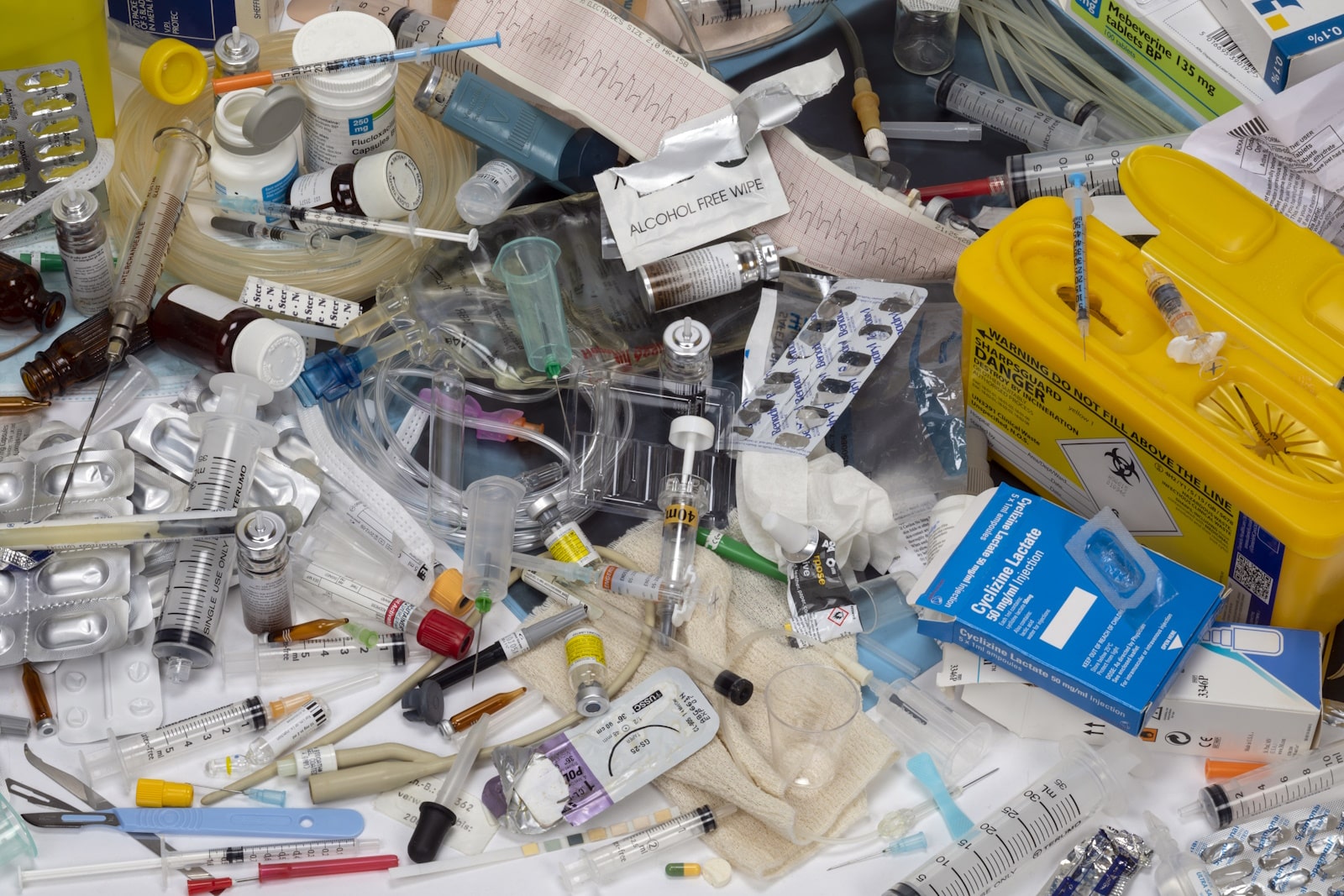A Comprehensive Guide to Medical Waste Disposal
Medical waste disposal is a crucial aspect of healthcare operations. Improper disposal can pose significant risks to public health and the environment. As healthcare facilities generate various types of waste, from hazardous materials to pharmaceutical products, the importance of efficient, safe, and compliant disposal practices cannot be overstated. This blog explores the latest regulations, environmental concerns, technological innovations, and real-world case studies, highlighting how businesses like A-Thermal are transforming the medical waste management landscape.
Regulations and Compliance in Medical Waste Disposal
Medical waste disposal is heavily regulated to protect public health and the environment. In the UK, the Health and Safety Executive (HSE) and the Environmental Protection Act set guidelines for handling and disposal. In the US, the Environmental Protection Agency (EPA) and Occupational Safety and Health Administration (OSHA) enforce regulations, while South Africa adheres to the National Environmental Management: Waste Act (NEMWA) and Health Act, supported by the South African Bureau of Standards (SABS). These frameworks classify waste into categories like sharps, pharmaceuticals, and pathological waste, each requiring strict handling.
Confidentiality is another critical aspect. The US enforces the Health Insurance Portability and Accountability Act (HIPAA), and South Africa applies the Protection of Personal Information Act (POPIA), mandating secure disposal of materials containing personal information.
Compliance can be challenging, requiring training, detailed documentation, and effective waste segregation. Non-compliance risks fines, reputational damage, or facility closure in South Africa. However, healthcare providers can navigate these challenges with the right systems, including advanced waste management solutions and certified disposal services, ensuring efficient and lawful operations.
The Environmental Impact of Medical Waste Disposal
The environmental consequences of improper medical waste disposal are severe. When medical waste is disposed of in landfills, harmful substances, including toxic chemicals and infectious agents, can leach into the groundwater, posing risks to both humans and wildlife. Moreover, medical waste incineration, while effective in reducing waste volume, can release pollutants into the air, contributing to atmospheric pollution.
In response, many healthcare providers are turning to more sustainable disposal methods. Recycling is becoming increasingly popular, with many facilities achieving impressive diversion rates. Some hospitals now recycle up to 65% of their medical waste, including plastics and paper, significantly reducing their environmental impact.
Energy recovery technologies, such as pyrolysis and gasification, are also gaining traction. These systems convert medical waste into energy, reducing the need for incineration while generating electricity and heat. This not only helps manage waste but also supports sustainability by providing an alternative energy source.
The debate between single-use versus reusable equipment also plays a significant role in reducing environmental impact. Single-use items contribute substantially to waste, but reusable alternatives, such as sharps containers and surgical instruments, can significantly lower the environmental footprint of healthcare facilities.
Technological Innovations in Medical Waste Disposal
Technological advancements are transforming the landscape of medical waste disposal, offering more efficient, safer, and environmentally friendly solutions.
AI and automation are at the forefront of these innovations. AI-powered systems now allow for the real-time tracking of medical waste containers, ensuring proper disposal and compliance. These systems also provide detailed logs and reports, streamlining the audit process and improving transparency.
In addition, robotics are being used to automate the segregation of medical waste. By reducing the need for manual handling, these systems not only enhance efficiency but also lower the risk of exposure to hazardous materials. Automated sorting systems can accurately differentiate between recyclable and non-recyclable waste, reducing errors and ensuring better waste management.
Smart waste management technologies also offer significant benefits. IoT-enabled waste containers can monitor waste levels, preventing overfilling and reducing transportation costs. These systems optimise collection schedules and waste disposal routes, contributing to lower carbon emissions and operational savings.
Case Studies in Medical Waste Disposal
Real-world examples highlight the benefits of adopting innovative waste management systems.
- Reducing Sharps Injuries: A hospital in the US implemented smart sharps containers with built-in sensors and tracking systems. Over a six-year period, the facility reduced sharps injuries by 87%, improving both worker safety and waste management efficiency.
- Recycling Success: A large European hospital adopted a comprehensive recycling programme, achieving a recycling rate of 55-65% for medical waste. This initiative not only diverted substantial waste from landfills but also reduced overall disposal costs.
- Energy Recovery: In the UK, a hospital implemented pyrolysis technology to convert medical waste into energy. This system has significantly reduced the hospital’s reliance on traditional waste incineration, lowering carbon emissions and providing an alternative source of electricity for the facility.
These case studies show that with the right technology and approach, healthcare providers can minimise their environmental impact, improve waste management practices, and meet regulatory requirements.
Medical waste disposal is more than just a regulatory obligation—it is essential for public health and environmental protection. Healthcare providers must adopt sustainable practices, comply with strict regulations, and embrace innovative technologies to manage waste effectively.
At A-Thermal, we provide state-of-the-art solutions for safe and compliant medical waste disposal. Our advanced technologies and services help healthcare facilities reduce environmental impact, enhance operational efficiency, and maintain regulatory compliance. Contact us today to discover how we can support your facility’s medical waste disposal needs.







